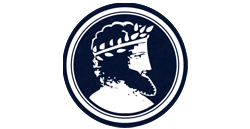Delphi on Zoom –
When: Friday, June 26, 3pm.
Please note: to help networking, we will start at 2.45pm. We will also keep the meeting open for 10 minutes after the event finishes at 4.15pm. A list of attendees’ emails will be sent around after the event (actual attendees only). Invoicing will occur after the event.
Where: On Zoom. A link will be sent at 2.45pm.
Who: Prof. Tomas Casas i Klett of the University of St Gallen in Switzerland.
Profile: https://www.weforum.org/people/tomas-casas-i-klett
Cost: 5,000 yen for non-members; 2,000 for members.
Leading A Business In A World Split by Superpower Rivalry
Several years ago, a very old Japanese executive told me that post-2008, the Age Of The Warrior was succeeding the Age of the Merchant.
His belief was that the pre-2008 system, based on excessive deal-making, debt, consumption and business activity of all kinds had been discredited by the Great Crash. The merchant was going to be ‘shown the door’, and nations would ‘regroup’ behind high walls. Louis Vuitton would be ‘out’ and austerity, thrift and patriotism would be ‘in’.
Our speaker Tomas Casas i Klett will argue that my old friend was at best partly right: merchants have become too powerful and create too much value to simply disappear. Instead, they have evolved a new relationship with the state. This situation has been hastened by the tension between two of the worlds’ greatest civilizations: Trump’s American and Xi’s China. Companies have quickly become components of state capability and power, in the US as much as in China.
Apple’s revenue of 260 billion USD is bigger than the German defence budget. It sits at the intersection of crucial technologies. It enjoys tremendous support from its consumers (its soldiers?). It has 200 billion USD of cash at hand (ammunition?) to invest in a way that few other organizations in the world can.
Apple is as much part of American power as the 101st Airborne division. It embodies everything that makes America great: public-private connections, enormous scale, astonishing innovation, management competence, bottomless access to financial markets, and cutting-edge marketing. (Facebook, Amazon and Google are also obvious exponents of US power, and there are many others.)
Like in the US, China has seen an acceleration in the melding of government and corporate power, as well as market concentration, rocketing profits, and the weakening of religious and labour counterbalances.
China’s ‘divisions’ lined up opposite the US ones are not negligible. When you search for the ‘best android smartphone’, a Huawei model pops up. German car makers express fear in the face of China’s remorseless investments in AI and software. Chinese auto startups flourish in every nook and cranny of the auto industry, often focusing on the new demands triggered by Covid 19. Even China’s ‘junior partner’ Russia produces some of the finest high technology in the world. For years, it’s been Russian rockets taking embarrassed US astronauts to the ISS.
As business and political elites merge, these new power structures need to demonstrate that they can compete. The temptation for ‘value extraction’ (along the tragic African model) instead of ‘value creation’ is hard to resist. Tomas argues that it’s currently not clear that Western elites outperform East Asian elites. He will explain why, based on cutting edge research.
Any CEO wondering about leadership in a world of high stakes, political antagonism and technological competition should attend this event.
Tomas speaks German, Spanish, Mandarin, Japanese and English. He graduated from the Wharton School of Business before becoming a ‘salaryman’ in Japan in the 1990s. However, he soon decided that China – then embarking on its journey of ‘opening up and reform’ – was the place for a budding entrepreneur. Following an exciting career in Chinese business, Tomas began to research business modernization in China, Russia and India, often with counter-intuitive results. His first book published was on Japan’s challenges and potential ‘Japan’s Open Future: An Agenda for Global Citizenship’, (co-authored with J.P. Lehmann and J. Haffner). His latest work is titled ‘The Life of Russian Business: (Re)cognizing, (Re)activating and (Re)configuring Institutions.’ Forthcoming (09.2020) is the Elite Quality Report (EQx2020), a global index ranking countries on the quality in terms of value creation/extraction of their elites. Tomas is a senior academic at the University of St Gallen, where he obtained his Ph.D. He also has a M.Sc in management from Fudan University in Shanghai. He is one of a small group of truly global business thinkers.

